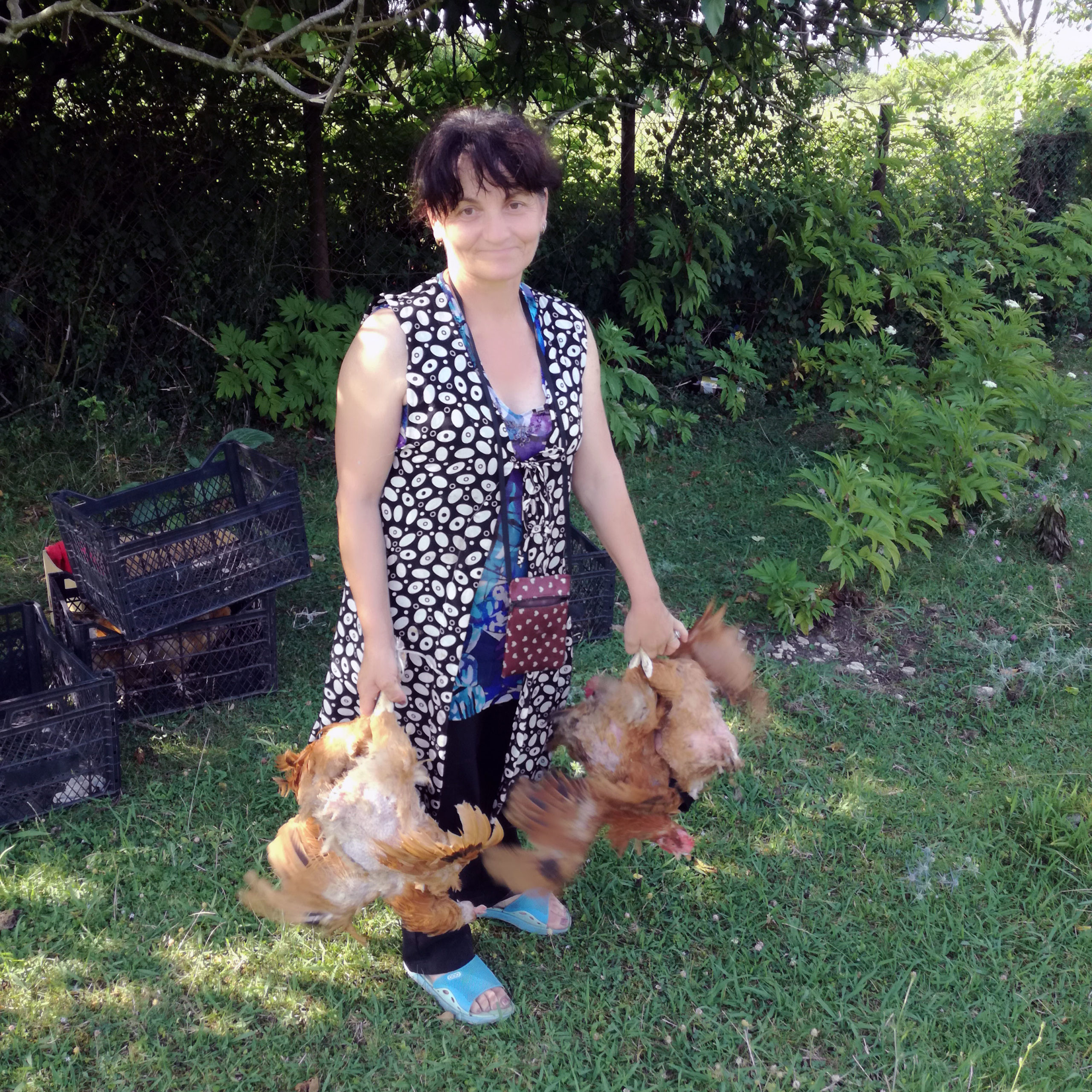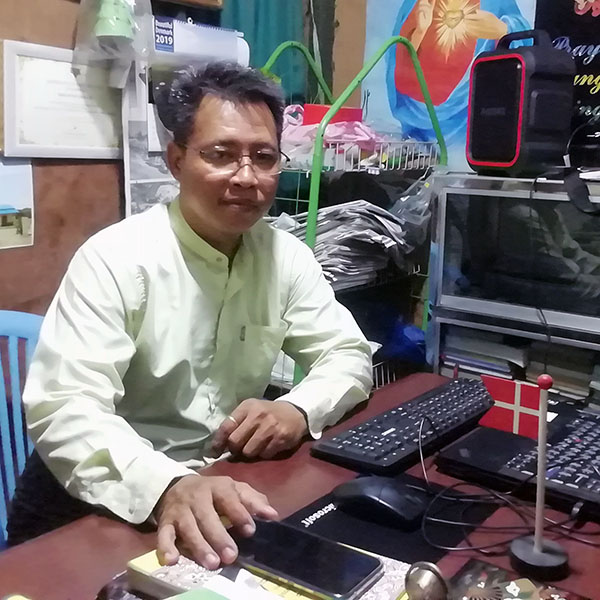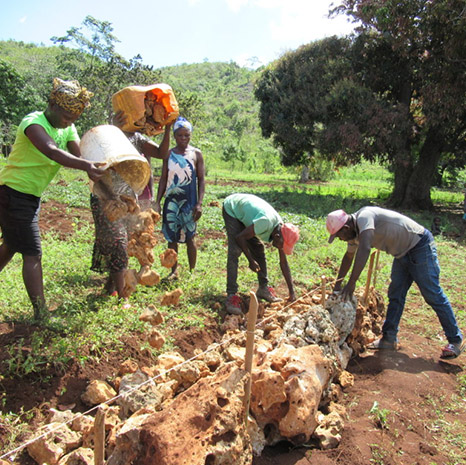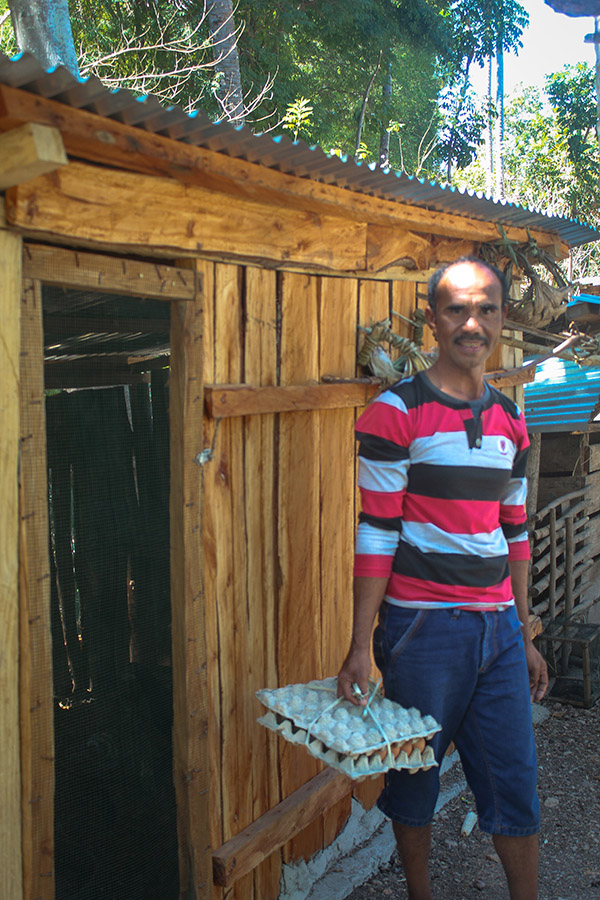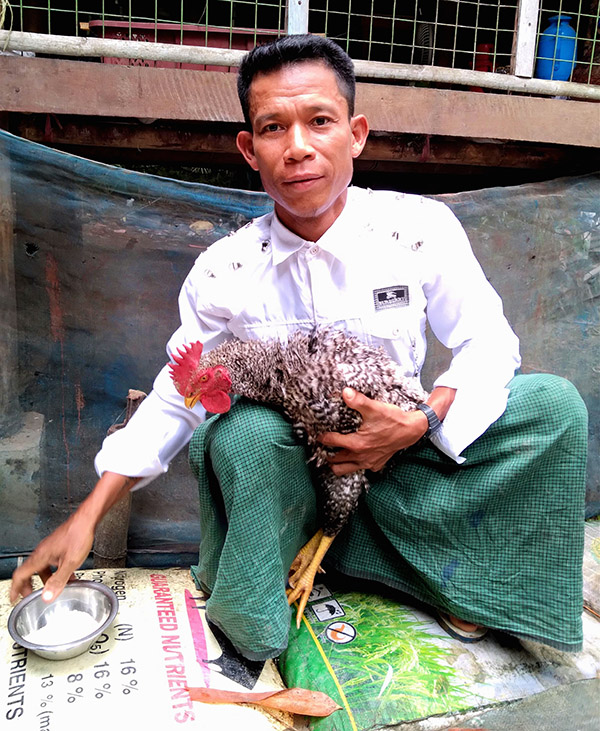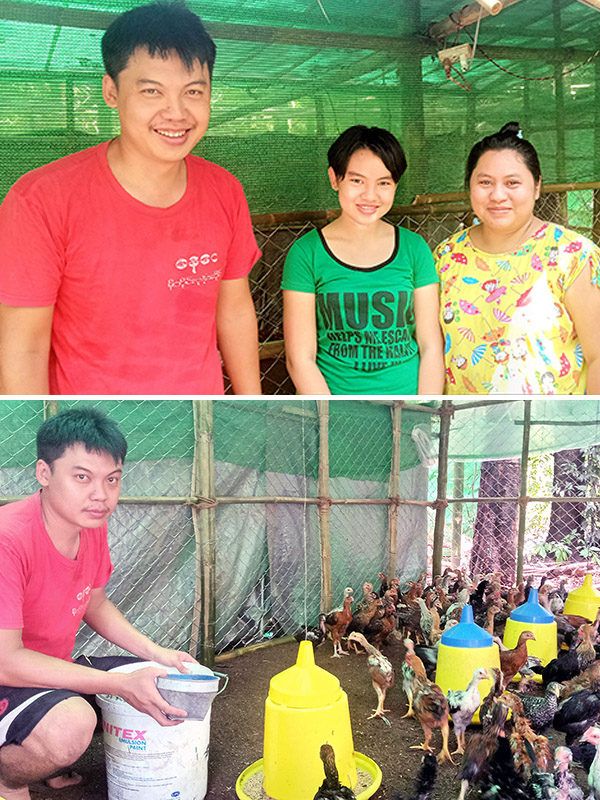Indigenous communities have lived in the Gran Chaco region of Paraguay for centuries. And for most of that time, families had lots of ways to earn a living. They hunted, fished, ate local fruits, consumed local honey and made crafts. This lifestyle was largely possible because they could move freely across the vast region. It wasn’t an easy way of …
Stories of Change
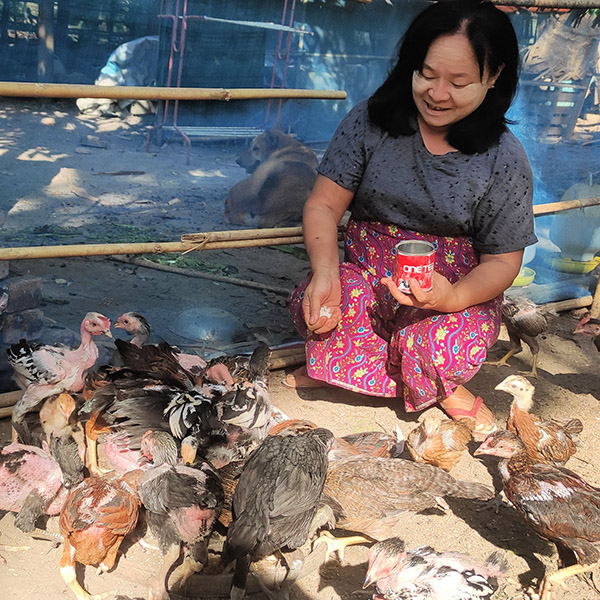
Daw Aye May and her chickens.
Hope for a new chicken farmer in Myanmar
Daw Aye May, a 56-year-old widow, used to make a living selling herbs in an open-air market. That was before COVID-19 public health restrictions curtailed public gatherings at large markets and travel beyond township borders. In the village of Sar Phyu Su, 40 miles north of Yangon, Myanmar, salaried job opportunities are limited. And when she lost her husband in 2019, Daw Aye May thought her future was gone too. Then along came the pandemic which disrupted an already limited economy by reducing the ability for farmers to sell products in more distant and larger markets.
Although Daw Aye May lives alone, she has emotional and limited financial support from a son and daughter, both married and in their thirties. When selling herbs was no longer a possibility, she started to consider how else she could earn money. Then in July, she heard that CWS was sharing chickens with families in greatest need. She learned that funding had come from vending machines set up by the Latter-day Saint Charities. She had never heard of CWS, nor of the Church of Latter-day Saints. Moreover, she had only seen vending machines in American movies, and those machines contained drinks and snacks.
Within weeks of picking up two hens and a rooster from a hatchery delivery truck, she had eggs. “I didn’t have any idea about how to raise chickens, but just wanted to try. I just fed the chickens and let all the eggs hatch,” she said. In fact, she let the first 12 eggs hatch into young chicks. Shortly afterwards, she collected another 13 eggs from the first two hens and sold 10 eggs in the village to earn $1.81. That’s more than half the official daily minimum wage of $3.53. “I was so happy as this was my first time to make money from chicken raising business,” she said proudly.
CWS sourced a local breed of hens and roosters for villagers because they are easier to raise free-range style. Daw Aye May now has 30 hens and five roosters in less than five months, and with no prior experience in raising poultry. “I learned that chicken meat from the local breed earns more money. For example, 3.5 pounds of my chicken sells for $5.06. Meat from foreign species sells for $2.89 for the same weight.”
She spends just 37 cents per day to feed the flock as they forage around a fenced yard area for scraps and insects. Daw May Aye expects to gather 30 eggs per day starting next month, earning up to $5.42/day in sales within a cluster of walkable villages.
The newly inspired chicken farmer gushed, “I thank CWS for sparking the light of a more hopeful future for me. Honestly, I wasn’t initially interested in chicken raising. Now, I want to be a poultry businesswoman. With a flock of 35 hens and roosters already, I will expand the flock further. My plan is to collect and sell more eggs in neighboring villages where I am allowed to travel. Also, I will use chicken manure in my home-gardening as organic fertilizer. Lastly, I say ‘Thank You’ to CWS and LDS, as these simple words express my sincerest gratitude.”

